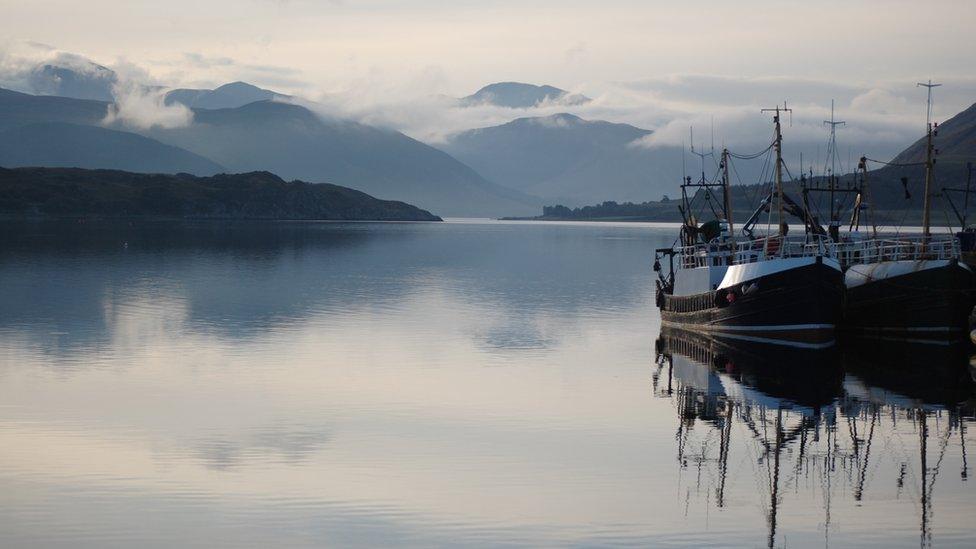Scottish government says UK is right to leave fishing deal
- Published

The convention covers waters within 12 miles of the British coast
The Scottish government has backed a UK plan to leave an international agreement on fishing access.
The UK government is to withdraw from the deal which allows foreign fisherman access to British waters.
It has announced it will begin the process of leaving the London Fisheries Convention, giving two years notice of its intention.
Signed in 1964, it allows vessels from six European countries to fish between six and 12 miles from the coast.
UK environment secretary Michael Gove said it was an important step in "taking back control" of fishing.
Scottish Fisheries Secretary Fergus Ewing said he and his colleagues have been pressing for the move "for some time".
British vessels will lose the right to fish in waters belonging to the other countries which signed the convention: France, Belgium, Germany, Ireland and the Netherlands.
'First step'
Mr Gove said: "Leaving the London Fisheries Convention is an important moment as we take back control of our fishing policy.
"It means for the first time in more than 50 years we will be able to decide who can access our waters.
"This is an historic first step towards building a new domestic fishing policy as we leave the European Union - one which leads to a more competitive, profitable and sustainable industry for the whole of the UK."
The EU Common Fisheries Policy allows, in addition to the London convention, vessels from all EU countries to fish beyond the 12-mile limit.
Scottish Fishermen's Federation Chief Executive Bertie Armstrong has expressed his support.
He said: "This measure is warmly welcomed - access to our rich fishing grounds will become a matter for us on withdrawal from the Common Fisheries Policy.
"Leaving the London Convention as part of that sends a very strong additional message of commitment."
Sustainable fishing
Environmental campaigners have expressed caution about the regulation of fishing once the UK leaves the current international framework.
Will McCallum, Greenpeace UK head of oceans, said: "For years, successive UK governments have blamed Brussels for their own failure to support the small-scale, sustainable fishers who are the backbone of our fishing fleet.
"If Brexit is to herald a better future for our fishers, the new Environment Secretary Michael Gove must keep the 2015 Conservative Party manifesto commitment to re-balance fishing quotas in favour of 'small-scale, specific locally based fishing communities'."
The Scottish government supports the principle of leaving the London convention.
Fisheries Secretary Fergus Ewing said: "The UK government's decision to withdraw from the London Fisheries Convention is a move we have been pressing for some time now.
"Our priority is to protect our fishing industry and allowing unrestricted access to our waters to remain through this convention clearly would not be doing that."
He added: "The Scottish government will always stand up for our fishing industry, which too often has been let down by the UK government."